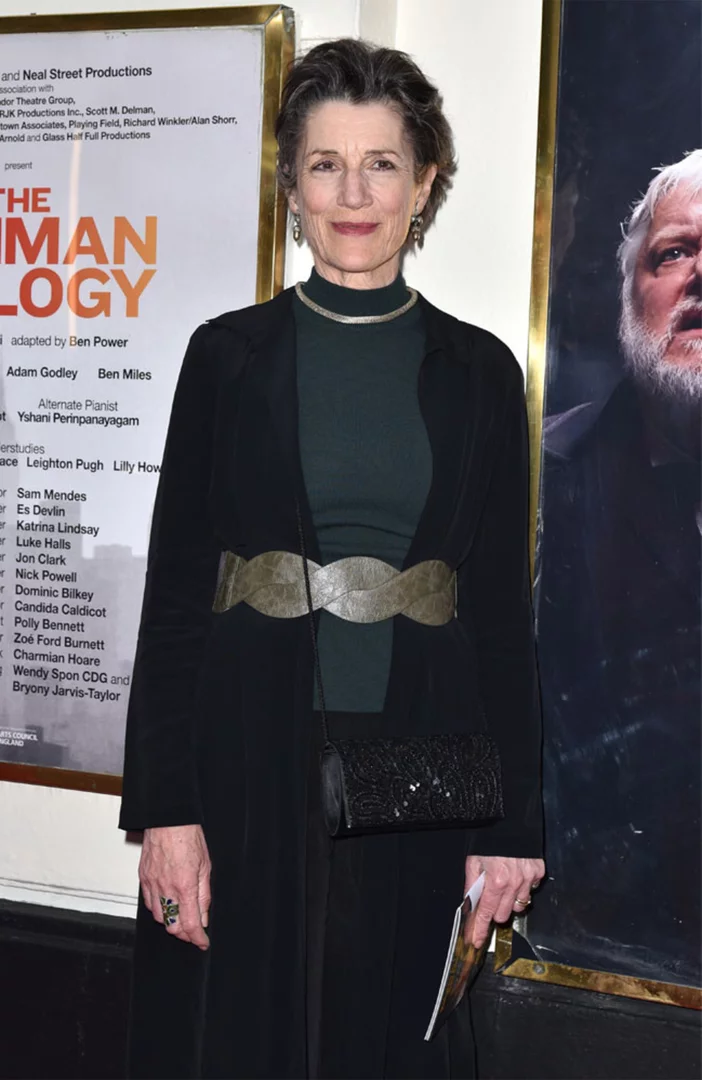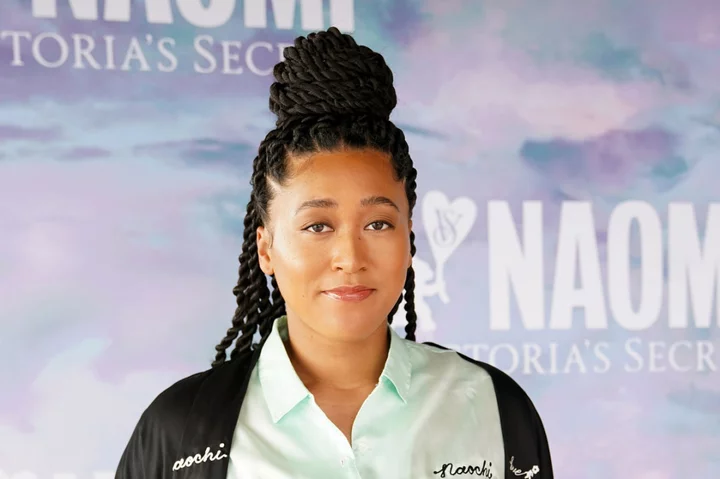
As Rebecca Adlington shares heart-breaking miscarriage news: How to support others experiencing baby loss
Rebecca Adlington said she is “truly heartbroken” after suffering a late-stage miscarriage. The double Olympic gold medal swimmer found out about the devastating loss at a routine 20-week scan, sharing the news in a post on Instagram yesterday evening. “I don’t really have the words right now but unfortunately we went for our 20 week scan this week and they found no heartbeat. I gave birth to our angel, Harper on Friday at 7pm. We held her, and had time with her. We will forever love her and remember her always,” Adlington, 34, said. After thanking staff at Wythenshawe Hospital for their “kindness and care”, she added: “I don’t have the strength or words right now and don’t feel ready to share this news. However, I can’t pretend to be ok or fake a smile. I can’t have people ask me how pregnancy is or when I am due as I still look pregnant. I don’t have the strength to tell this news individually. “We are so truly heartbroken. Our beautiful girl. Rest in peace.” Adlington – who shares son Albie, two, with her husband Andy Parsons and has an eight-year-old daughter, Summer, from her previous marriage with Harry Needs – previously revealed she’d had a miscarriage 12 weeks into her pregnancy last August, resulting in emergency surgery. And as her Instagram post this week highlights, one of the many difficult things about losing a baby is telling other people. So, how can people respond supportively when a friend, relative or colleague shares news of a baby loss? Showing empathy “It’s about showing empathy as much as you possibly can, showing some form of understanding, and really just being there to listen to them,” Rochelle Love, a midwife working with baby loss charity Tommy’s, told the PA news agency. A late miscarriage is one which happens between 14-24 weeks of pregnancy, and is less common than early-stage miscarriage, occurring in an estimated 1-2% of pregnancies, Love explained. “We don’t always know why these miscarriages happen. They can be for a multitude of reasons, and the sad thing for expectant parents is that we may not always find a definite cause,” she added. “It may not necessarily be related to previous miscarriage.” Take care with ‘helpful’ comments Friends and family may try to comfort someone who’s lost a baby with well-meaning but sometimes way off-the-mark ‘helpful’ comments. Love said it’s crucial to be very careful about what you say. “I don’t think it’s ever up to us to make assumptions, and especially do not make comments like: ‘Don’t worry, you can have another baby’, ‘Don’t worry, you can try again’, or, ‘You were only 20 weeks pregnant’,” Love advised. “I think sometimes people just don’t know what else to say, so they make these throwaway comments, which are not necessarily the best things to say when someone’s grieving. It’s not up to us to say [these things] – how do you know, for example, that they can have another baby? Think about what you’re going to say before you speak to someone who’s had a loss.” Be mindful of terminology Remember this isn’t just a foetus to the grieving parents – it’s their child, and it can be very important to talk about it as such. Love said: “Address the baby as their baby, and if the baby has a name, then use it. Be very careful of the words you use.” Be there for them Instead of offering up platitudes, Love said it’s often better to just let people know you’re there if they need you. “Just let them know you’re there for them – you’re there if they want to speak, or if they just want to sit in silence – you’re available to be their support if and when they should need it,” she explained. Don’t forget their partner Love stresses that any kind of support needs to be extended to the partner as well. “Sometimes the partner is ignored and we just focus on the pregnant person, but the partner is the pregnant person’s closest support and they’ve also lost their baby and are also grieving,” she said. “I always advise anyone who’s had an unfortunate loss that if they decide to go for grief counselling, they should make their partner a part of that process as well, so they can go on that grief and healing journey together.” Remember everyone will grieve differently Loss and grief is experienced differently by everyone. “How I may grieve a pregnancy loss may be very different from how somebody else might grieve,” said Love – so it’s important to let people do things their way and at their own pace. Think about offering them helpIf you are close with them, offer practical help if you feel they may welcome it. Love said this could mean “getting someone’s groceries for them because they don’t feel they can face getting dressed and going out, or cleaning the house – anything at all could be very well received.” Tommy’s helpline is on 0800 014 7800 Read More What you need to know about new research into treating cervical cancer How to do Halloween make up and still take care of your skin Which houseplants best suit your star sign? 5 of the hottest new perfume launches for autumn/winter Consistent lack of sleep may increase risk of future depressive symptoms – study World Osteoporosis Day: The risk factors and early warning signs everyone needs to know about
2023-10-23 21:29

'We will never, ever get back together and replace Lemmy. That’s impossible...' Mikkey Dee says Motorhead will not reform
Heavy metal drummer Mikkey Dee says reforming Motorhead is “impossible” without late frontman Lemmy but he has vowed to play the band's songs live.
2023-10-23 20:23

What you need to know about new research into treating cervical cancer
Using existing drugs to treat cervical cancer before standard treatment could lead to a 35% reduction in the risk of relapse or death, a new study suggests. Researchers from the UCL Cancer Institute and UCLH looked into whether a short course of induction chemotherapy (IC), where a drug is used to destroy as many cancer cells as possible, before chemoradiation (CRT), could help with this. Here’s everything you need to know about the findings… What is cervical cancer? According to the NHS website, cervical cancer is a type of cancer found anywhere near the cervix – the opening between the vagina and the womb (uterus), which is also known as the neck of the womb. Most cervical cancers grow very slowly and are caused by an infection from specific types of human papillomavirus (HPV) and mostly affect women under the age of 45. According to Jo’s Cervical Cancer Trust, symptoms include vaginal bleeding that is unusual to you, changes to vaginal discharge, discomfort during sex and pain in your lower back or pelvis. Changes to cells can be spotted by a cervical screening, and then treated before they turn into cancer. There are around 3,200 new cases every year in the UK, with the five-year survival rate being around 70%, according to Cancer Research UK. CRT has been the standard treatment for cervical cancer patients since 1999, but even though there have been overall significant developments in radiation therapy techniques, up to 30% of people experience their cancer coming back. What did the research involve? Over a 10-year period, 500 patients who had been diagnosed with cervical cancer – that was large enough to see without a microscope but hadn’t spread to other parts of the body – took part in the Interlace trial at hospitals in the UK, Mexico, India, Italy and Brazil. Researchers looked into whether a short course of IC before CRT could reduce rates of relapse and death. What results were found? After five years, researchers discovered that 80% of the people who received a combination of chemotherapy and radiotherapy were alive, whilst 73% had not seen their cancer return or spread. A major benefit, according to researchers, is that it can be incorporated into standard of care treatment relatively quickly, because cheap, accessible and already-approved ingredients such as carboplatin and paclitaxel are needed for IC. “Our trial shows that this short course of additional chemotherapy delivered immediately before the standard CRT can reduce the risk of the cancer returning or death by 35%,” said Dr Mary McCormack, lead investigator of the trial from UCL Cancer Institute and UCLH. “This is the biggest improvement in outcome in this disease in over 20 years. “I’m incredibly proud of all the patients who participated in the trial; their contribution has allowed us to gather the evidence needed to improve treatment of cervical cancer patients everywhere. “We couldn’t have done this without the generous support of Cancer Research UK.” Why is the research important? Dr Iain Foulkes, executive director of research and innovation at Cancer Research UK, said: “Timing is everything when you’re treating cancer. The simple act of adding induction chemotherapy to the start of chemoradiation treatment for cervical cancer has delivered remarkable results in this trial. “A growing body of evidence is showing the value of additional rounds of chemotherapy before other treatments like surgery and radiotherapy in several other cancers. “Not only can it reduce the chances of cancer coming back, it can be delivered quickly using drugs already available worldwide. “We’re excited for the improvements this trial could bring to cervical cancer treatment and hope short courses of induction chemotherapy will be rapidly adopted in the clinic.”
2023-10-23 20:22

SEVENTEEN's Seventeenth Heaven is the most pre-ordered K-pop album in history
SEVENTEEN's 'Seventeenth Heaven' is the most pre-ordered K-pop album, shifting over 5.2 million copies prior to its release on Monday.
2023-10-23 20:16

Rock collected by Apollo 17 astronaut in 1972 reveals moon's age
By Will Dunham WASHINGTON During the Apollo 17 mission in 1972 - the last time people walked on
2023-10-23 20:16

An Oil Giant Quietly Ditched the World’s Biggest Carbon Capture Plant
The world wants to master the process of corralling carbon, and Occidental Petroleum Corp. is building a futuristic
2023-10-23 19:57

Offset: Confidence is the sexiest thing Cardi B can wear
Rapper Offset says it was Cardi B's confidence that won him over.
2023-10-23 19:54

Angelina Jolie: I don’t tell my kids how to dress
Hollywood star and mother-of-six Angelina Jolie says she doesn't dictate her kids' fashion choices.
2023-10-23 19:51

Harriet Walter: I was told to fix my teeth and get a nose job at the start of my career!
'Atonement' star Harriet Walter reveals she was told to "fix" her teeth and get a nose job at the start of her acting career.
2023-10-23 19:47

Naomi Osaka opens up about fighting thoughts that she ‘won’t be a good mom’
Naomi Osaka has reflected on battling self-doubt and difficult thoughts as a new mother. The four-time Grand Slam tennis champion gave birth to her first child, a daughter named Shai, in July 2023. She shares Shai with her partner, rapper Cordae. On Sunday (22 October), Osaka shared some insights into her personal life with her fans to mark turning 26 earlier in the week. In an extended post on X, formerly Twitter, the Japanese athlete wrote about taking stock of her life so far, and wondering whether or not she’s taken the “correct path”. “I often try to retrace my steps to figure out how did I end up here,” she explained. “I know I say this often but I truly still feel like that kid playing on public courts in Queens, NY. “Randomly I wonder if I’m doing OK, is there a correct path to take in life or have I veered off onto the scenic route for a little bit? However, I’ve now come into the mindset that I can only keep moving forward and everything that will be, will be.” Osaka then shared her specific feelings of worry about her capabilities as a parent. “Something I had to conquer recently is fighting the thought that I won’t be a good mom,” she wrote. “So many doubts raced through my head I had to swat them away like mosquitoes. “Looking into Shai’s eyes and holding her I always think, ‘Wow this little person depends on me so much, I have to do better.’ It’s such a strange feeling watching your kid grow, you blink and they’re double the size in a few months. “Gratefulness reminds me to breathe and take in the little things (and the big ones).” Osaka ended her post by expressing her gratitude for having “another year” and for the people who support her. Osaka’s last competitive match was at the Toray Pan Pacific Open in September 2022, before she withdrew from the tournament due to abdominal pain. She announced her pregnancy in January 2023 shortly after stating that she wouldn’t be competing in the Australian Open later that month. Last month, Osaka spoke about her year away from playing tennis and mentioned how other female tennis stars’ longevity has influenced her desire to keep competing. “The whole process, it felt long and short at the same time,” she told the American sports news channel ESPN. “When I stepped away, it was Tokyo, that was the last tournament I played. I just remember watching the Australian Open and being very devastated, because I’ve never missed an Australian Open. “When I was watching Serena and Venus [Williams], I was thinking, ‘Ah, I probably no way will ever play at their age’, but sitting here, I’m like, ‘You know what? I might do that actually.’” Read More ‘Truly heartbroken’ Rebecca Adlington reveals late miscarriage Should we stop putting the clocks back? What the experts think ‘I lost over a stone on Ozempic, but now it’s run out what am I to do?’ ‘Truly heartbroken’ Rebecca Adlington reveals late miscarriage Should we stop putting the clocks back? What the experts think ‘I lost over a stone on Ozempic, but now it’s run out what am I to do?’
2023-10-23 17:29

Kenny Ortega 'disappointed' by Hocus Pocus sequel snub
Kenny Ortega found it "disappointing" that he wasn't asked to direct 'Hocus Pocus 2' and is still yet to watch the sequel to his 1993 Disney movie.
2023-10-23 17:29

'Less is more': Matthew Vaughn urges superhero studios not to exhaust fans
Matthew Vaughn has urged movie studios to prioritise quality over quantity in the superhero genre to prevent audience "fatigue".
2023-10-23 17:28
